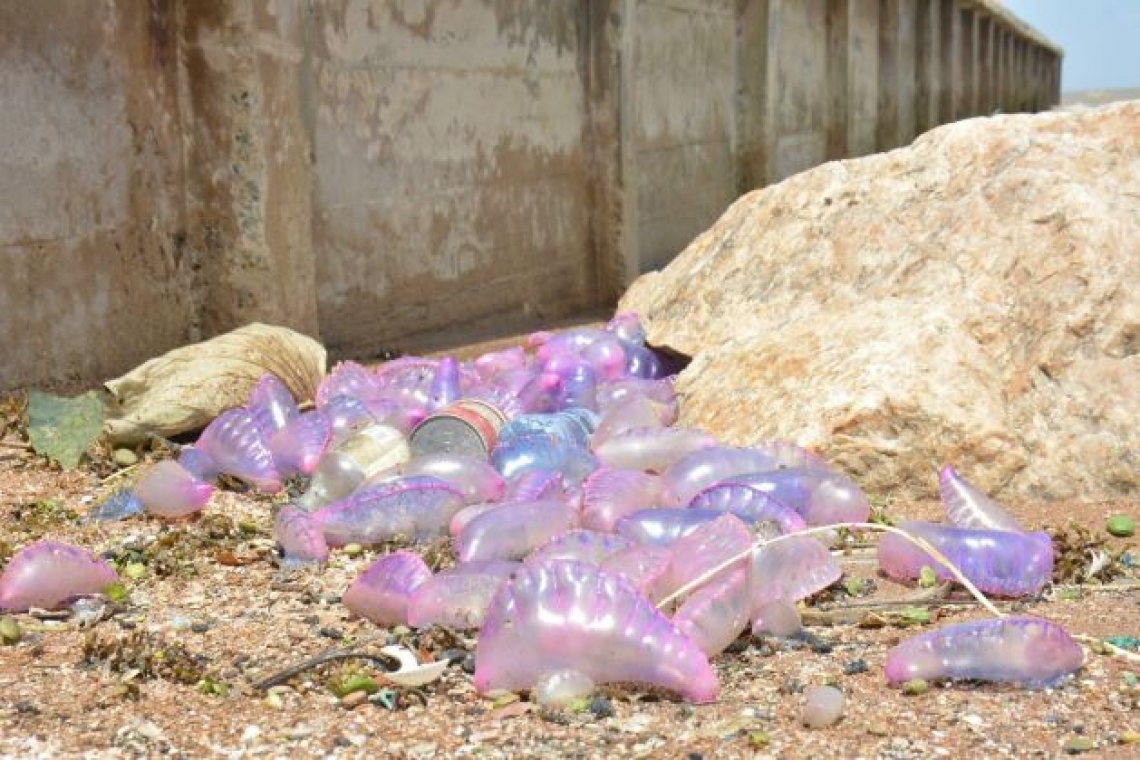GEORGETOWN, Guyana--A venomous marine creature called the Portuguese man of war has been coming ashore in large numbers at the Georgetown Seawall.
Often mistaken as a jellyfish, the man of war is actually a colony of individual organisms called polyps.
The man of war comprises four separate polyps. It gets its name from the uppermost polyp, a gas-filled bladder (or pneumatophore) which sits above the water and somewhat resembles an old warship at full sail.
The tentacles are the man of war’s second organism. These long, thin tendrils can extend 165 feet in length below the surface, although 30 feet is more the average. They are covered in venom-filled nematocysts used to paralyse and kill fish and other small creatures.
Muscles in the tentacles draw prey up to a polyp containing the gastrozooids or digestive organisms. A fourth polyp contains the reproductive organisms.
The University of Guyana’s Centre for the Study of Biological Diversity is warning persons to exercise extreme caution if they come in contact with the jellyfish-like organism.
In a social media post, the Centre explained that recent changes in the wind direction and increased wave action may have caused the species to be washed ashore in large quantities.
Though beached, the creatures can deliver a sting so powerful that it causes excruciating pain. This species is responsible for up to 10,000 human stings in Australia each summer.
Stings usually cause severe pain to humans, leaving whip-like, red welts on the skin that normally last two or three days. The venom can travel to the lymph nodes and may cause symptoms that mimic an allergic reaction, including swelling of the larynx, airway blockage, cardiac distress and an inability to breathe. Other symptoms can include fever and shock, and in some extreme cases, even death, although fatalities rarely occur.
The Centre is advising persons who may have gotten stung to remove the tentacles with an object, and not touch or rub the infected area; rinse the sting with vinegar, then immerse the area in hot water to deactivate the remaining sting cells, and take 3-5 grams of Vitamin C as it is excellent at neutralising toxins.
According to the Centre, if conditions do not improve, persons should visit a medical practitioner for help. ~ iNews Guyana ~







